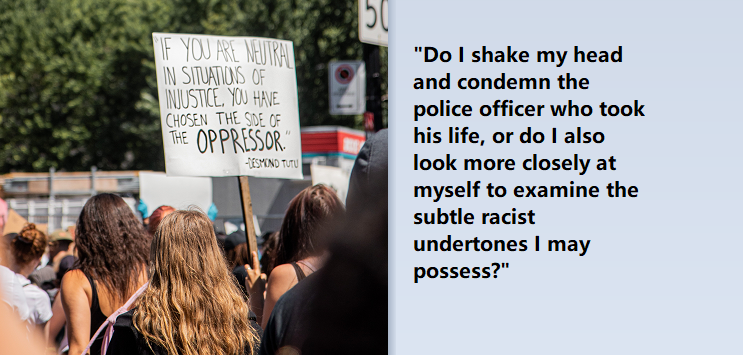Wynne C

I remember very vividly my first encounter with racism in the UK. It was back when I was a medical student in university six years ago and was waiting for the bus one morning. A man from across the street walking his dog, took one look at me and shouted, “Go back to China, chink!” I was horrified and wondered what to do. I looked at the people around me. They were all looking at their phones or looking down to the ground. No one spoke up for me.
Fast forward to the year 2020, I now work as a doctor in the Emergency Department of a local hospital. With the coronavirus originating from China, it has caused racism to rear its ugly head among the community I serve. I remember calling a patient from the waiting room. Before I could say anything, he took one look at me and asked if he could see another doctor. This was the first time this had ever happened in the four years I had been a doctor. I felt humiliated. I approached a senior colleague about the matter, and he told the man that we do not tolerate abuse or prejudice against members of staff. Finally, someone spoke up for me and I felt heard.
The sad murder of George Floyd in the U.S. has led to a major uproar within the Black community and beyond, with international Black Lives Matter protests, calls for police reforms and changes in legislation to tackle racial inequalities. Everywhere I looked on the Internet, whether it is the news or social media, I was overwhelmed by a myriad of information on how Black people have been oppressed over the years and how this is the time for change. I knew at that point that I had a decision to make. Do I merely view the murder of George Floyd as a sad incident for the Black community, or do I, at the same time, make an effort to look at the bigger picture of the underlying racism and persecution amongst the Black community throughout history? Do I shake my head and condemn the police officer who took his life, or do I also look more closely at myself to examine the subtle racist undertones I may possess?
The traditional Chinese immigrant mentality is such that we are taught from a young age not to speak up for ourselves, let alone others, in the face of bullying or persecution. We are taught to keep our heads down, not to stir up “trouble” and to keep in our lanes. Being controversial and confrontational is almost taboo in the culture!
I came across the wise words of a Nobel Peace Prize winner and human rights activist, Archbishop Desmond Tutu, “If you are neutral in situations of injustice, you have chosen the side of the oppressor. If an elephant has its foot on the tail of a mouse, and you say that you are neutral, the mouse will not appreciate your neutrality.” I suddenly remembered the hurt I experienced due to the neutrality and indifference of the people around me at that bus stop six years ago, and I made a conscious decision that I would not be the perpetrator of that same hurt towards my Black brothers and sisters. I refuse to keep quiet when they need to feel heard.
It is easy to say to ourselves, “I’m not racist” and shut the door on self-reflection. Yet I have noticed that only when we embark on a journey of educating and examining ourselves, do we acknowledge the unconscious biases we possess and need to consciously unlearn. I would like to share an important concept of racial microaggression that has changed how I perceived myself. Racial microaggression is defined as “brief and commonplace indignities, whether intentional or unintentional, which direct negative prejudicial insults towards any group, particularly culturally marginalised groups”. Examples of racial microaggression include: locking the car door when you see a person of a certain ethnicity walking by, saying “I’m not a racist. I have Black friends” ; asking an Asian person why they are so quiet, saying, “I don’t see colour” or “There is only one race, the human race”; and even dismissing the fact that race plays a role in life successes due to socio-economic status and lack of opportunities by saying, “Everyone can succeed if they work hard enough.” Many of us are guilty of these examples, and it should make us feel uncomfortable and challenge us to change.
We don’t need to get it right all at once. More importantly, we need to be aware that everyone is at a different stage of this journey, and that being judgmental or condemning of another person’s genuine lack of understanding is detrimental to his or her further willingness to learn and change. We need only to acknowledge in ourselves and families that there is room for more empathy, more learning and more courage to speak up for the oppressed. We can do better than this, and we will!